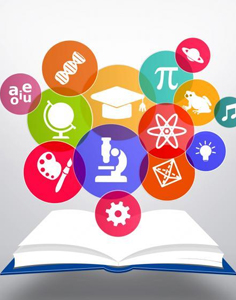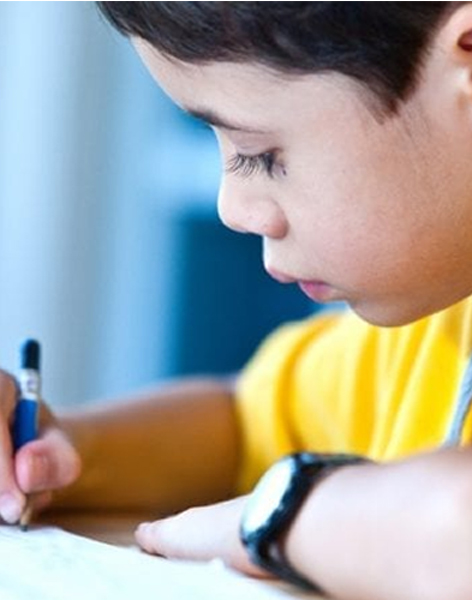
Our program strives for a balance between the search for understanding, the acquisition of essential knowledge and skills, the development of positive attitudes and the opportunity for positive action. In achieving this balance, the program consists of five components, which are referred to as the essential elements of the curriculum and are listed below. Powerful ideas which have relevance within and across the disciplines and which students must explore and re-explore in order to develop understanding. Key concepts are expressed as questions – form (What is it like?), function (How does it work?), causation (Why is it like it is?), change (How is it changing?), connection (How is it connected to other things?), perspective (What are the points of view?),

The body of significant and relevant subject matter we wish students to explore and know about. This knowledge is represented through six subject areas: languages, social studies, science and technology, mathematics, arts, and personal, social and physical education.
We help high achieving students grow faster with personalized enrichment programs,and We help students facing temporary learning difficulties stay on top of coursework with remedial coaching.

The acquisition of knowledge, comprehension, application, analysis, synthesis, evaluation, dialectical thought, and metacognition.
Formulating questions, observing, planning, collecting and recording data, organising and interpreting data, and presenting research findings. Communication skills: listening, speaking, reading, writing, and non-verbal communication
Gross and Fine Motor skills, spatial awareness, Organisation, Time management, Safety, A Healthy lifestyle, codes of behaviour and making informed choices Social Skills: accepting Responsibility, respecting others, cooperating, resolving conflict, group decision making, and adopting a variety of group roles.

Characteristics that are Expressions of Fundamental values, beliefs and feelings about learning, the environment and people. Students are developing the following attitudes: Appreciation, Commitment, Confidence, Cooperation, Creativity, Curiosity, Empathy, Enthusiasm, Independence, Integrity, Respect, and Tolerance.
Demonstrations of positive action and service. Students are encouraged to reflect, choose wisely and to act responsibly with their peers, school staff and in the wider community. Through such service, students are able to grow socially and personally, developing skills such as cooperation, problem solving, conflict resolution and creative and critical thinking.

We are committed to structured, purposeful inquiry, which provides multiple entry points meeting the diverse needs of our population and involves students actively in their own learning. The reason is simple. We believe that this is the way in which students learn in the most constructive manner..
tudents participate in engaging and motivational activities that enable them to develop a deep level of understanding. Student learning is characterised by the long-term retention of ideas, and by an awareness of its connection with other things, including life in the real world. How will we know what the students have learned? Assessment is integral to all teaching and learning.
We help Students build creative, analytical and collaborative skills with engaging academic projects,With child specific worksheets and question papers, we build each child's confidence and abilities day after day.

• Innovative and competence Education.
• Student focussed activity based learning.
• Student centric learning in a harmonious, secure and serene environment.
• Sparkling imaginations, fertile minds and willingness to face challenges in life.
• Efficient and effective communication skills
Pre-Nursery The child should be 3+ years of age as on 31stMarch of the year seeking for admission
Nursery The child should be 4+ years of age as on 31stMarch of the year seeking for admission
Preparatory The child should be 5+ years of age as on 31stMarchof the year seeking for admission
Grade I The child should be 6+ years of age as on 31stMarch of the year seeking for admission
Grade II The child should be 7+ years of age as on 31stMarch of the year seeking for admission
Grade III The child should be 8+ years of age as on 31stMarchof the year seeking for admission
Grade IV The child should be 9+ years of age as on 31stMarch of the year seeking for admission
Grade V The child should be 10+ years of age as on31stMarch of the year seeking for admission